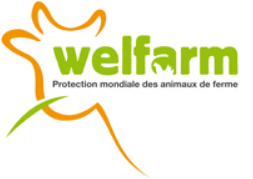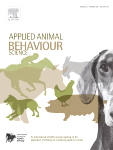Document type: news from Welfarm
Author: Welfarm
Preview: Since its launch by Welfarm three years ago, the TruckAlert application has enabled the reporting of 437 trucks transporting livestock at temperatures in excess of 30°C, in breach of current regulations. The data is the basis for the case made by Welfarm in letters it has sent to two French Ministers and two European Commissioners for the revision of current legislation it is asking for.
To do something about the many farm animal deaths that occur during transport due to high temperatures, the Welfarm Association launched, in July 2020, their TruckAlertapp. The app allows users to report the transport of live animals in temperatures over 30°C (and is available free of charge from the AppStore and PlayStore).
A year earlier, in response to pressure from animal protection associations, the then Minister of Agriculture, Didier Guillaume, issued a Decree designed to restrict animal transport during heatwaves, as part of the French Climate Change Adaptation Plan. The decree prohibits the transport of certain animals between 1 p.m. and 6 p.m., with a few exceptions, in Départements for which an orange or red heatwave alert has been issued by Météo France on the day before departure.
An arbitrary prohibition window
Since its launch, TruckAlert has been used to report 437 trucks in breach of the temperature rule. This proves the ineffectiveness of a measure that is, on the whole, not strict enough. Of the 437 cases, 176 involved journeys made at temperatures of over 30°C between midnight and 1 p.m. and between 6 p.m. and midnight. The time window designated by the order of July 22, 2019 is therefore meaningless for the effective protection of animals in hot weather.
Despite its lack of effectiveness, this measure has been retained in the new National Plan for Climate Adaptation. Welfarm has therefore taken the decision to draw this matter to the attention of the French Minister for Ecological Transition, Christophe Béchu, publishing an open letter on July 3, that has been co-signed by the France Nature Environnement Federation of associations.
The letter is supported by the evidence in the TruckAlert reports, and in it, Welfarm states that "preparing for a a temperature rise scenario of over 4°C by the end of the century requires us to plan for transformational adaptation that demands a profound and structural change calling for requiring the restructuring of livestock farming and transport systems".
Gaps in the regulations
On July 20, Welfarm also sent a report of TruckAlert's findings to the French Minister for Agriculture and Food Sovereignty, Marc Fesneau, and to the European Commissioners for Agriculture, Janusz Wojciechowski, and Health and Food Safety, Stella Kyriakides. The report is accompanied by a letter setting out what the association is calling for:
- to the Minister of Agriculture, asking him to :
- "support the adoption at European level of a new European regulatory framework for the transport of live animals that is ambitious and is able to require sufficient adjustments to the transport of animals in periods of extreme heat". Welfarm hopes that this new legislation will make the recommendations of the European Food Safety Authority mandatory, requiring that the internal temperature of lorries should never exceed a temperature that is bearable to animals (e.g., 25°C for cattle);
- as a matter of urgency, take the necessary steps and pass into law the decrees and orders required to guarantee the effectiveness of current European regulations;
- to the two European Commissioners, with regard to the forthcoming adoption of the prospective regulations on the transport of live animals, to :
- ensure that the permitted leeway of + or - 5°C in the application of the ban on transport at temperatures above 30°C laid down in current European regulations, which is currently being abused by some transporters, is abolished or, at the very least, becomes a genuine exception within a well-defined framework;
- make mandatory the recommendations of the European Food Safety Authority, which state that the interior temperature of a lorry should never exceed that which animals are able to withstand, taking account of species;
- re-evaluate the authorized loading densities for lorries;
- harmonize the application of European regulations on animal transport among member states. The current disparities encourage a race to the bottom in required standards;
- ban live animal exports to non-EU countries immediately.
Download the TruckAlert responses report





